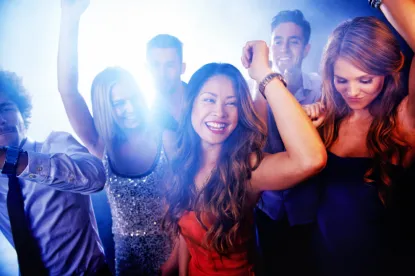At the risk of sounding crass and overgeneralizing, social establishments – particularly those catering to the non-married crowd – like having more women at their establishments, and so they offer free items to women on the assumption that doing so will attract more women. Theoretically, having more women present attracts more men. More men means more people overall, and more people theoretically translates into more spending at said establishment. On the one hand, an establishment offering gender-based promotions such as “Ladies’ Nights” might think this is a popular marketing tool and merely sound business. On the other hand, these same business owners should also be concerned that such gender-based promotions are unlawful discrimination.
Either way, hospitality business owners should be aware that even if often overlooked, the legality of these types of promotions is troublesome. In fact, depending on where they operate, business owners might be surprised to know that the use of gender-based or other protected class-based promotions violate many state anti-discrimination and public accommodation laws.
Admittedly, the law on these types of issues is not uniform across the states, and the question does not appear to even have been addressed in many state judicial systems. At the federal level, courts have consistently found these practices to be a state issue because challenges brought under the Equal Protection Clause of the Fourteenth Amendment fail for lack of state action. Instead, successful claims against businesses conducting “discriminatory” marketing promotions depend on state and local law.
The majority of states that have reached the question have found “Ladies’ Nights” or similar types of promotional activities unlawful. Courts and/or administrative bodies in the following states have all found, in various forms, that gender-based promotional activities violate state or local anti-discrimination protections: California, Colorado, Florida, Iowa, New Jersey, New York, Maryland, Minnesota, Pennsylvania, and Wisconsin. Additionally, claims alleging unlawful discrimination have not been limited to drinking establishments either, as several states have considered promotions by professional sports teams, race tracks, and tennis clubs, generally concluding that such promotions are discriminatory.
State tribunals have found these kinds of practices to be a form of impermissible gender discrimination, even when businesses have tried creative ways to get around these bans. For example, one Maryland establishment hosted a “Skirt and Gown Night” rather than simply “Ladies’ Night” and claimed it was not discriminating based on gender, but instead offering a promotion based on attire that men could also choose to wear. Multiple tribunals within the Maryland legal system did not buy it, finding a “Skirt and Gown Night” had the same practical effect as an unlawful “Ladies’ Night.”
Not all states ban these kinds of promotions however. Washington, Illinois, Michigan, and Nevada have approved “Ladies’ Night” promotions in state proceedings. Nevada has even altered its anti-discrimination law after legal challenges to the prevalent practice of gender-based promotions at Las Vegas nightclubs. In 2008, the Nevada Equal Rights Commission found a Las Vegas athletic club could not offer free memberships to women as part of its marketing strategy. This in part led to challenges to Las Vegas nightclubs’ practice of allowing women free entry and/or drinks. The Nevada legislature responded in 2011, officially declaring that “It is not unlawful … for any place of public accommodation to offer differential pricing or special offers based on sex to promote or market the place of public accommodation.”
For establishments in states banning promotions, creative business marketers might think they can get around this prohibition by offering a “Men’s Night” on a different day of the week. But not so fast: at least two state decisions anticipated this strategy and rejected it. A Wisconsin appellate court found that offering preferential treatment to women on one night and to men on another did not somehow cure the violation because the applicable state statute plainly stated preferential treatment on the basis of sex was prohibited regardless if it was for men or women or the intent behind the promotion. In 2004, a New Jersey administrative proceeding approvingly cited that Wisconsin decision and agreed splitting nights based on gender violated New Jersey’s anti-discrimination law.
Even though a handful of states have given a nod of approval for gender-based promotions at hospitality establishments, the practice of doing so is fraught with danger because the trend is decisively against the practice. Before any business offers consider such a marketing strategy, it would be wise to seek advice from counsel.




 />i
/>i

